Your baby is now officially an embryo and is about the size of a poppy seed.
Please visit www.nhs.uk/conditions/pregnancy-and-baby/4-weeks-pregnant/ for more information.
Local Maternity and Neonatal System
View navigation
Alcohol and pregnancy
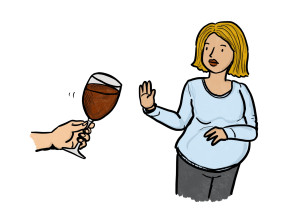 The UK's Chief Medical Officers recommend that, if you are pregnant or planning to get pregnant, the safest approach is not to drink alcohol at all. This will keep the risks to your baby to a minimum. Drinking in pregnancy can lead to long-term harm to the baby. The more you drink, the more the risk.
The UK's Chief Medical Officers recommend that, if you are pregnant or planning to get pregnant, the safest approach is not to drink alcohol at all. This will keep the risks to your baby to a minimum. Drinking in pregnancy can lead to long-term harm to the baby. The more you drink, the more the risk.
Drinking alcohol, especially in the first three months of pregnancy, increases the risk of miscarriage, premature birth and your baby having a low birth weight. Drinking after the first 3 months of your pregnancy could affect your baby after they’re born.
No alcohol means:
A video highlighting the risks of drinking in pregnancy is here .
Information on drinking alcohol when breastfeeding can be found here and on the LMNS website here.
Local support services are listed below:
If you are worried about your drinking or someone else's drinking call 0300 123 1110 (free) or click here .
A Pregnancy and Alcohol leaflet with advice to protect you and your baby has been developed by South Yorkshire ICB and is available in Vietnamese, Urdu, Tigrigna, Romanian, Polish, Sorani, Hungarian, Czech and Arabic on our LMNS translated resources page here.

Your baby is now officially an embryo and is about the size of a poppy seed.
Please visit www.nhs.uk/conditions/pregnancy-and-baby/4-weeks-pregnant/ for more information.
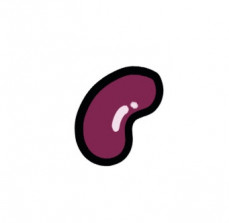
Your baby is now the size of a kidney bean and weighs 1g.
Please visit www.nhs.uk/conditions/pregnancy-and-baby/8-weeks-pregnant/ for more information.
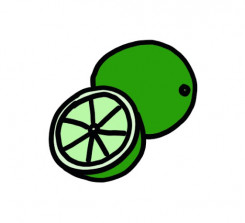
Welcome to the second trimester!
Your baby is about the size of a small lime and weighs approximately 14g.
You have hopefully seen your midwife for your 'booking in' appointment, if you have not yet seen a midwife please make an appointment quickly, so you can have all of your choices about screening tests explained and offered to you.
Please visit www.nhs.uk/conditions/pregnancy-and-baby/12-weeks-pregnant/ for more information. You can also link to the 'Pregnancy Journey' area here.

Your baby is about the size of an avocado and weighs approximately 100g.
Please visit www.nhs.uk/conditions/pregnancy-and-baby/16-weeks-pregnant/ for more information.

Your baby has grown in length and is now the length of a small banana and weighs approximately 300g. Around this time you will be offered your '20 week' scan, also known as the 'anatomy' or 'anomaly' scan.Click here for more information about screening.
This is a also a good time to talk and sing to your bump as your baby can now hear sounds. This is great way for you and your partner/family to bond with your baby.
Please visit www.nhs.uk/conditions/pregnancy-and-baby/20-weeks-pregnant/ for more information.
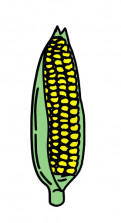
Your baby has grown again to the approximate length of an ear of sweetcorn and weighs about 600g.
Please visit www.nhs.uk/conditions/pregnancy-and-baby/24-weeks-pregnant/ for more information.
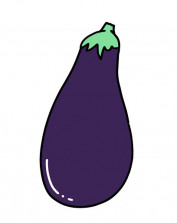
Welcome to the third trimester!
Your baby is now approximately the weight of an aubergine; about 1kg and approximately 37cm in length.
Please visit www.nhs.uk/conditions/pregnancy-and-baby/28-weeks-pregnant/ for more information.
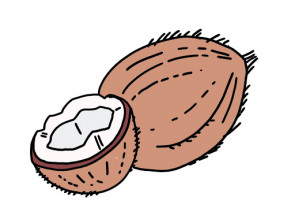
Your baby now weighs approximately the same as a coconut; around 1.5kg.
Please visit www.nhs.uk/conditions/pregnancy-and-baby/32-weeks-pregnant/ for more information.
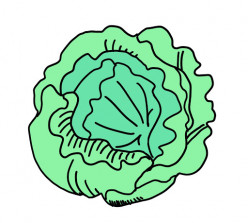
Your baby is now around the same size as a lettuce, approximately 47cm long and weighs around 2.6kg.
Please visit www.nhs.uk/conditions/pregnancy-and-baby/36-weeks-pregnant/ for more information.
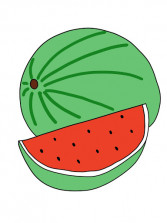
Your baby is now the weight of a small watermelon which is approximately 3.3kg and around 50cm in length.
Please visit www.nhs.uk/conditions/pregnancy-and-baby/40-weeks-pregnant/ for more information.